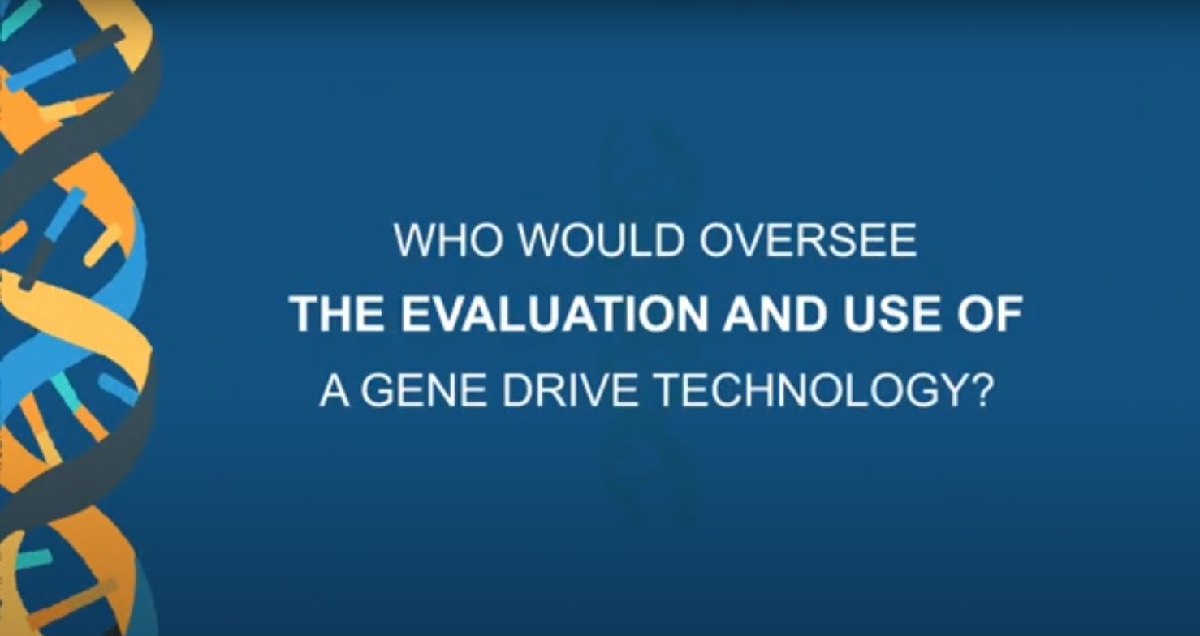
National Biosafety Authorities Should be Responsible for Gene Drive Risk Assessment and Regulation
September 28, 2022| |
A video released by the Outreach Network for Gene Drive Research answers the question of who should be responsible for overseeing gene drive research. Two experts express that national biosafety authorities should take responsibility to satisfy the national and international requirements, which include certifications, provisions, and safety assessments around the research, use, and release of gene drives.
According to Martin Lema, Adjunct Professor at the University of Quilmes National, authorities should oversee gene drive technology using the existing regulatory framework for genetically modified organisms (GMOs). In the past, different countries have been regulating GMOs primarily for agriculture. In some cases, the existing framework may need adjustments or additional framing to apply to a specific biotech approach, especially when the latter is new. But the basic rules and the safety assessment criteria of these frameworks can be and should be used for the environmental release of other GMOs, with gene drive among them.
Jeremy Ouedraogo, Director of the African Biosafety Network of Expertise, agrees that the national biosafety authority should be responsible for the risk assessment for all applications from scientists. Risk assessment starts with the certification of facilities for gene drive research and ends when the application reaches final approval. This is crucial for all national and international communities, who will ensure that what is required to conduct the research has been complied with.
Learn more from the Outreach Network for Gene Drive Research.
| |
You might also like:
- Gene Drive Regulations to Evolve as the Technology Advances -Experts
- Are We Ready to Conduct Risk Assessment on Gene Drive Technologies?
- Experts Say Gene Drive Specifics Important to Policies, Assessment, Application
Biotech Updates is a weekly newsletter of ISAAA, a not-for-profit organization. It is distributed for free to over 22,000 subscribers worldwide to inform them about the key developments in biosciences, especially in biotechnology. Your support will help us in our mission to feed the world with knowledge. You can help by donating as little as $10.
-
See more articles:
-
Gene Drive Supplement (September 28, 2022)
- Gene Drive Consortium Outlines Best Practices in Stakeholder Engagement
- CRISPR-based Method Could Check Crop Pests
- "It's Time to Bite Back Against Mosquitoes"
- Experts Weigh in on the Eradication of Mosquitoes that Transmit Deadly Diseases
- National Biosafety Authorities Should be Responsible for Gene Drive Risk Assessment and Regulation
-
Read the latest: - Biotech Updates (February 18, 2026)
- Gene Editing Supplement (January 28, 2026)
- Gene Drive Supplement (February 22, 2023)
-
Subscribe to BU: - Share
- Tweet

